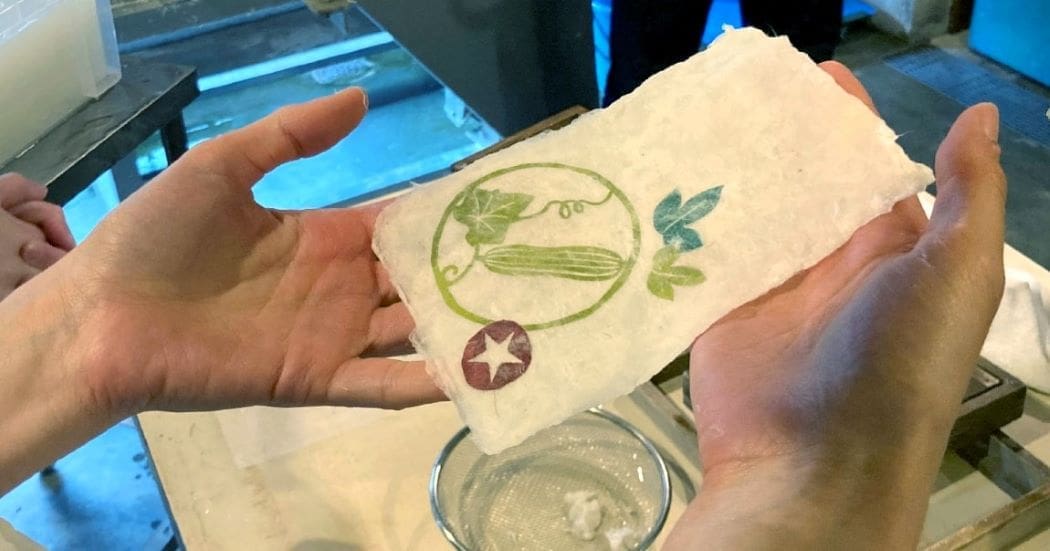Japanese washi paper is renowned for its aesthetic beauty and its wide-array of usages. Now, a group of Tohoku University researchers have made a green composite material from washi which boasts a 60% increase in strength as well as being more biodegradable. They hope that their research will revive interest in this traditional craft.
Washi: the traditional Japanese paper, known for its beauty and strength, has been used in bookbinding, art, furniture, and architecture for hundreds of years. But more recently, washi’s usage is on the decline, as people opt for more western style housing designs. In a bid to revive interest in this traditional craft, a group of Tohoku University researchers has developed an environmentally friendly material from washi that boasts improved strength and biodegradability.
Details of the research were published in the journal Composites Part A: Applied Science and Manufacturing on May, 9, 2024.
Bio-based and biodegradable materials are increasingly sought after as the world seeks to move away from fossil based-plastic materials and build a more sustainable society. Green composites combine plastics with natural fibers, producing materials with higher strength, improved biodegradability, and a lower environmental footprint.
“We created a green composite from washi, which itself stems from plant fibers, improving its properties further whilst still maintaining its classical beauty,” points out Hiroki Kurita, co-author of the paper and an associate professor at Tohoku University’s Graduate School of Environmental Studies.
To produce the material, Kurita and his colleagues layered and hot pressed sheets of Washi with polybutylene succinate (PBS). To source the Washi, they worked with an artisan from a Miyagi-based washi-workshop. The material’s ultimate tensile strength, i.e., the amount of stress the paper could withstand, stood at 59.85 MPa, representing an improvement of over 60%.
Washi has a lot of space between its entangled fibers. When combined with PBS, the plastic filled these spaces, thereby locking the fibers in place and preventing the fibers from moving.
PBS is also notable for its biodegradability, and the resultant composite material degraded much faster than pure plastic. After 35 days, it had biodegraded by 82%.The biodegradation was calculated by measuring the amount of CO2 released from the material when it was buried in compost. At the same time, researchers measured weight loss and loss of strength during degradation.
Not only was the team successful in producing a new material, but Kurita believes they were able to raise the standard of biodegradation testing and provide blueprints for future research into biodegradable composite materials. “We utilized both standardized and non-standardized methods for measuring biodegradability. The differing methods used will help researchers compare biodegradability between different materials moving forward.”
Journal Reference:
Lovisa Rova, Alia Gallet–Pandellé, Zhenjin Wang, Hiroki Kurita, Fumio Narita, ‘Japanese washi-paper-based green composites: fabrication, mechanical characterization, and evaluation of biodegradability’, Composites Part A: Applied Science and Manufacturing 184, 108261 (2024). DOI: 10.1016/j.compositesa.2024.108261
Article Source:
Press Release/Material by Tohoku University
Featured image: Hand-made washi from Ushiogami Workshop in Miyagi-ken was used in the study. Credit: Noriko Konno




